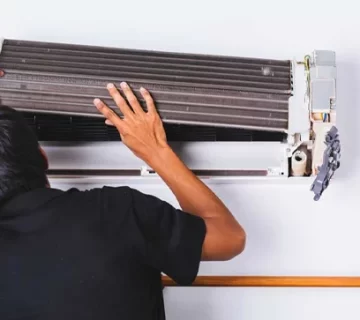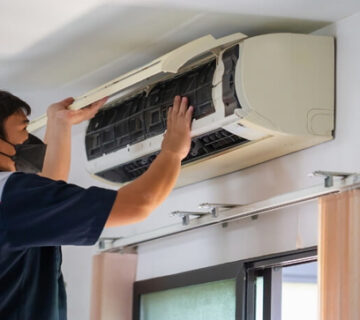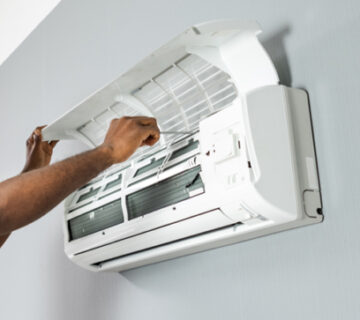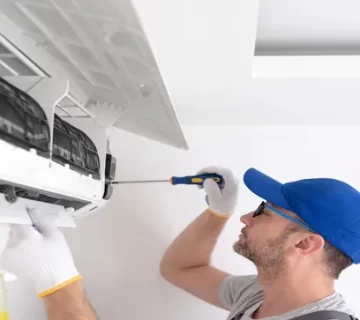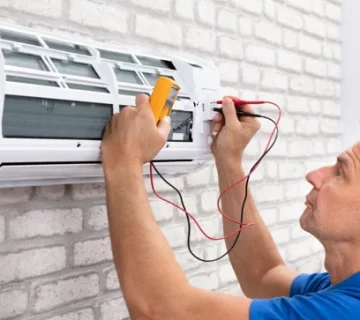A good investment that improves comfort and quality of life, especially in the sweltering summer, is an air conditioner. Its lifetime and best performance depend on careful maintenance and the use of genuine parts, which are essential. This manual provides professional guidance on extending the life of your Air conditioner parts by implementing crucial maintenance procedures and utilising genuine parts. By following these suggestions, you can improve your AC unit’s efficiency, lower energy expenditures, and lessen the possibility of untimely breakdowns in addition to extending its lifespan. Let’s go into the specifics of how to maintain your air conditioner so that it provides years of dependable and cosy cooling.
The lifespan of your air conditioner can be increased by performing routine maintenance, using it correctly, and replacing worn-out parts with authentic ones.
Here is a thorough guide to extending the life of your air conditioner:
Continual Upkeep:
-
Replace or clean your air filters since dirty filters limit airflow and make your Air conditioner tools work harder. Depending on usage, clean them or replace them every 1-3 months.
-
Evaporator and condenser coils should be kept clean. Inefficient coils can cause problems and diminish efficiency.
-
Condensate Drain Line: To avoid water damage and mould growth, make sure the drain line is clear. Every year, clean it.
-
Examine the components and wiring: Look for loose or broken capacitors, cables, and other electrical parts. Ensure that the connections are secure.
Correct Use:
-
Set reasonable temperatures in the temperature settings. Extreme settings force the device to work harder and degrade more quickly.
-
Use programmable thermostats to change the temperature while you’re gone from home. This lessens the needless stress on the AC.
-
Even Cooling: To keep the cooled air inside and lessen the strain on your air conditioner, close windows and doors.
-
Shade and Insulation: To lessen the effort, make sure your AC unit and the surrounding region are shaded and well-insulated.
Genuine components and substitutes:
-
Use Genuine Parts: When choosing replacement parts for your air conditioner, be sure they are genuine and come from the manufacturer or authorised dealers. Genuine components are made to fit exactly and guarantee top performance.
-
Consider the warranty: If your air conditioner is covered by a warranty, installing non-original parts could nullify it, so it’s better to stay with approved parts.
-
Professional Assistance: Hire licenced HVAC specialists to handle your repairs and replacements. They are qualified to precisely detect problems and guarantee proper installation.
Professional Inspection every year:
Plan a qualified HVAC specialist to do a yearly maintenance inspection. Before they become significant problems, they may recognise and solve possible difficulties.
Defending against the elements:
Use covers or enclosures to protect your air conditioning unit from inclement weather. By doing this, unneeded wear and tear is avoided.
Continual Cleaning
The AC unit’s exterior is susceptible to dust and dirt accumulation. Regular cleaning will guarantee optimal airflow.
Update as Necessary:
Consider replacing your outdated, inefficient AC unit with a more energy-efficient model. Newer models have been created to last longer and use less energy.
Power surge defence
To protect your AC system from power surges, which can harm delicate components, install surge protectors.
Keep in mind that increasing the lifespan of your air conditioner is mostly dependent on good maintenance, sensible use, and the use of genuine parts. Neglecting these factors may result in decreased effectiveness, higher energy costs, and more frequent breakdowns.
By combining careful maintenance, sensible usage, and the use of genuine parts, you may considerably increase the lifespan of your air conditioner. You may avoid putting undue pressure on your AC unit by following a routine maintenance schedule that includes cleaning or replacing filters, examining and cleaning coils, and making sure appropriate drainage. Its longevity can also be increased by using it responsibly, which includes maintaining normal temperatures, using programmable thermostats, and creating an environment that is well-insulated.


